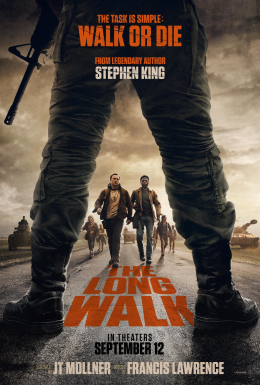
This is the film that finally answers the question, “If a tree falls down in a forest and no one is around to hear it, does it still make a sound?” In this case, it makes both a sound and a statement. Gorgeously shot, gingerly paced and sneakily profound, Clint Bentley’s Train Dreams (A) stars Joel Edgerton as a logger, railroad worker and hermit in the early 20th century whose life might not have been outwardly remarkable but proves deeply worthy of examination as a universal allegory for the human plight on earth. The movie confronts time and modernity and observes how the human animal responds to stimuli and reacts across a lifetime. Judicious narration by William Patton evokes both the folksy language of the source novella from which this work is adapted and also that of a nature documentary as we watch Edgerton’s man of few words and even fewer outside influences process love, remorse and so much more within the confines of a sparse story. Adolph Veleso’s lush cinematography does a lot of the film’s heavy lifting, with natural wonders such as luminous sunsets, kaleidoscopic forest fires and gurgling river currents, punctuating lyrical passages with a free flow of landscapes and dreamscapes. Bryce Dessner of rock band The National provides a lovely, ethereal soundtrack to the proceedings. In small but critical parts of the ecosystem on display, an affecting ensemble including Kerry Condon and William H. Macy makes an indelible imprint, their tiny explosions inciting rousing ripple effects opposite the endearing Edgerton. This memory piece is film as poetry, worth a watch and a washing over you. Bentley channels the cinematic pioneer of this form, Terrence Malick, in effervescent use of natural settings to paint an impressionistic human portrait. The movie’s omniscient, elegiac beauty makes for one of the singular cinematic experiences of the year.























